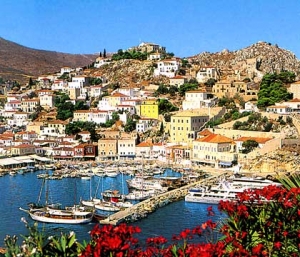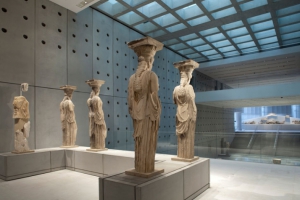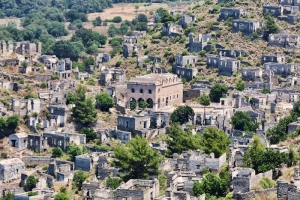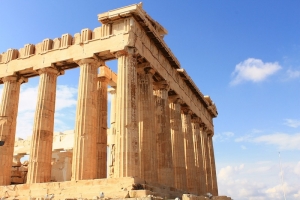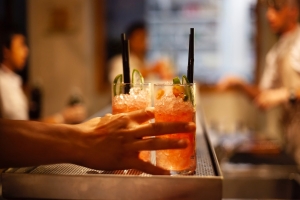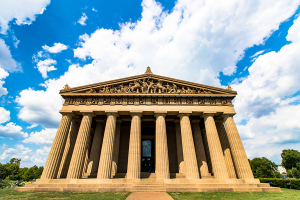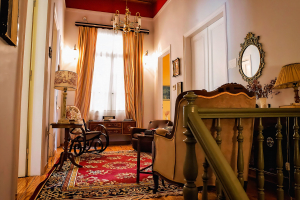XpatAthens
A Short Guide On How To Become A Greek Tax Resident
The method and implications of becoming a tax resident of Greece is one of the first things you will need to understand if you are considering moving to Greece. It will have implications in your daily life, and before you know it, after living in Greece for a week or two, you will be asking yourself “how do I become a tax resident of Greece?” This short guide will take you through the steps of becoming a tax resident in Greece.
Why do I need to become a tax resident in Greece?
If you stay over 183 days in Greece you are considered a tax resident. It’s a good idea to register as a tax resident so you don’t have any issues with the Greek authorities down the line including potential penalties. In addition, if you are living in Greece, it’s a lot easier to have your tax residency completed for ever day tasks such as medical, buying and selling cars and accessing government services.
What does it mean to be a tax resident in Greece?
If you become a tax resident of Greece than you will be required to pay tax on your worldwide income. You need to plan accordingly for this, especially if you have properties or other income overseas as this will need to be taxed.
There are some tax regimes in Greece which are particularly attractive for foreign residents who move their tax incentives to Greece. These have been designed to make it attractive for foreigners to move their tax residency to Greece and to move to Greece.
These include the 50% tax discounts (Non-Dom Tax Regime) which entitles people to a 50% tax break if they move their business or employment to Greece, as well as the special tax regime for foreign pensioners which offers a flat tax rate of 7%. Our tax team can help you understand if you are eligible for either of these incentives and guide you through the process of making an application.
Should I use a tax representative to assist me in Greece?
If you stay in Greece over the 183 day period (there are a number of more specific requirements and definitions which our tax team can assist you with), you may prefer to appoint a tax representative. This is helpful if you don’t speak the language or if you don’t understand the tax system. Your tax representative can be an accountant, lawyer or financial advisor and you can use them to manage your communication, work through the process, submit paper work and generally authorize them to act on your behalf for your dealings with the tax office in Greece. They can update your residency status in Greece and also make the appropriate declarations to the Greek tax authorities and ensure that you comply with all the laws and regulations.
We're here to help - feel free to reach out to us with your questions.
This content has been created in collaboration with Tsaks Consulting.
FOR SALE – Mercedes-Benz C230 Kompressor Coupe (2003)
Vehicle Details
Year: 2002 (October)
Body Style: 2-Door Coupe
Transmission: Six gear manual
Mileage: 211,000 km
Engine: Supercharged (Kompressor) Petrol
Color: Black
Interior: Fabric, like new
Condition: Excellent running condition, very well maintained
Key Features
One owner from new
Never involved in any accident
Always garaged and regularly serviced
Cold A/C – all electronics fully functional
Power windows, mirrors
Imported from California – clean and rust-free
Recent technical inspection passed with no issues
Full service history available
Price: €7,500 Negotiable
📄 Full documentation and service records included Photos Available Upon Request
Contact Info
Name: Spyros
Email: spyros.economides@csueastbay.edu
Location: Melissia, Athens, Greece
The Beautiful Island Of Hydra
Hydra, built in the shape of an amphitheatre on a slope overlooking the Argosaronic gulf, is one of the most romantic destinations in Greece. Traditional stone mansions, narrow cobblestoned streets, secluded squares and above all the banning of cars and the use of around 500 donkeys as means of public transportation, explain the reason why Hydra preserved its distinctive atmosphere through the passage of time.
The island experienced exceptional economic growth in the past thanks to its great naval and commercial activity. The Hydriots contributed significantly also to the 1821 War of Independence as their powerful fleet participated in crucial sea battles. It is a rather impressive fact that such a tiny island is the birthplace of five Greek Prime Ministers!
Lavish stone mansions owned by important families (Voulgaris, Kountouriotis, Tombazis, Kriezis, Bountouris, etc), and built by Italian artisans reveal the wealth that experienced the island in the past. Today most of these mansions house the island’s museums. 300 churches and 6 monasteries spread around the island as well as the cannons and the statues of the Independence War heroes still standing at the balconies of the islands create a romantic mosaic.
As you walk along the waterfront, the heart of the town, you encounter monuments, churches, canons, museums, old mansions, statues of famous heroes, the old gunpowder store, shops and cafes, while picturesque winding streets lead you to neighborhoods located at the upper part of the town, as well as to the old neighborhood of Kiafas.
To read more, go to visitgreece.gr
Govt Preparing For Critical European Summit Next Week
The next few days leading up to the European Summit scheduled for the 12th of February are going to be critical for Prime Minister Alexis Tsipras, whose main priorities will be to manage expectations and preserve the peace in Greece and Europe.
An unnamed government official told To Vima on Monday evening that “we may see smoked for the Commission’s building on Wednesday”, in reference to Mr. Tsipras’ meeting with Jean-Claude Juncker in Brussels on the 4th of February. The Greek Premier is then scheduled to meet French President Francois Hollande, while Finance Minister Yanis Varoufakis is rumored to see Wolfgang Schäuble next week, ahead of the Summit.
The goals are clear, to establish a channel of communication with Paris, Rome and Berlin and then to define the negotiation framework between Athens and the Commission. After Mr. Tsipras discusses his police statements next week, he will hope to attend the Summit in a friendly, rather than hostile, environment.
Meanwhile the German Chancellor Angela Merkel will be meeting with US President Barack Obama early next week, indicating that there will be a wealth of behind-the-scenes debates and developments.
To read more, please visit tovima.gr
The Acropolis Museum Turns 6!
On the same day, a concert in the museum courtyard will feature the Athens Municipality Philharmonic Orchestra and Choir in works from the interwar period, the cinema and Greek operetta. All exhibition areas and the restaurant will remain open from 8am to midnight and admission will be reduced at 3 euros for all visitors.
On June 21, the museum will organize a scientific conference focusing on recent archaeological research in Samothrace.
Organized in collaboration with ephorates of Rodopi and Evros,under the guidance Samothrace antiquities expert Dimitrios Matsas,the temporary show features 252 ancient artefacts assembled in groups on the basis of their relationship to the island’s sanctuary, where visitors were initiated into the island cult. The exhibit will run through to September 30.
To read more please visit: Greek Travel Pages
Filmmaker Documents Greek Ghost Town Of Levissi
To read this article in full, please visit: Greek Reporter
See the Ghosts of Levissi trailer here:



